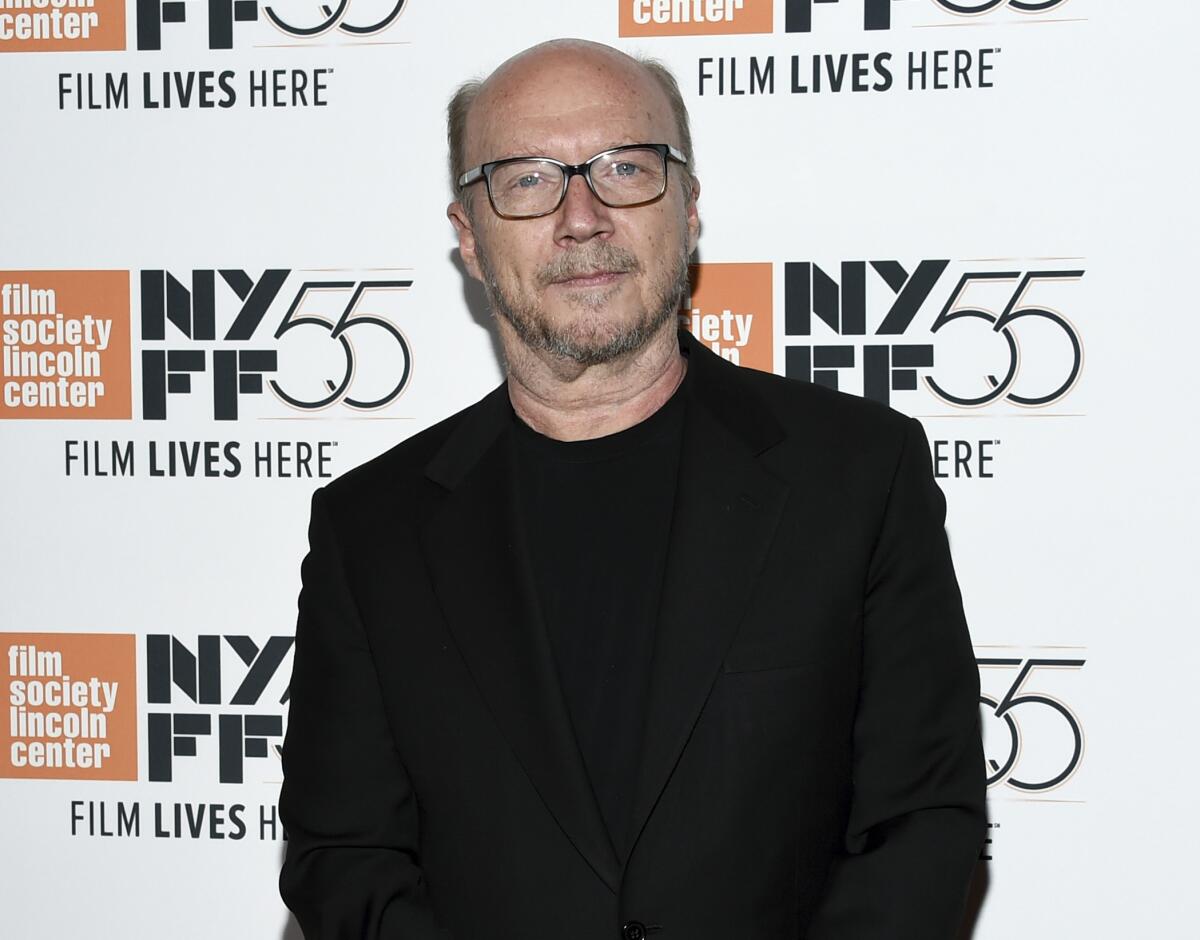Director Paul Haggis held at hotel ahead of Italian hearing in sexual assault case

ROME — Film director Paul Haggis was being held in a hotel room in southern Italy on Monday pending a court hearing while prosecutors pursue their investigation of a woman’s sexual assault allegations.
Prosecutors in Brindisi, a port town in Puglia, the region that forms the “heel” of southeastern Italy, announced on Sunday that police had detained the 69-year-old Canadian-born director, screenwriter and producer for investigation of alleged aggravated sexual violence and aggravated personal injuries over the course of two days.
They described the alleged victim as a “young foreign woman.”
The Oscar winner has been accused of sexually assaulting a woman while in Ostuni, Italy, for a film event.
State TV and other Italian media said she is a 30-year-old Englishwoman who had known Haggis before he came to the tourist town of Ostuni to participate in an arts festival that begins on Tuesday. They said he is being detained in a hotel room in that town.
Haggis’ Italian lawyer was in court Monday morning on other matters and couldn’t be reached for comment.
On Sunday, Haggis’ U.S.-based attorney, Priya Chaudhry, told the AP that although she could not discuss the evidence under Italian law, “I am confident that all allegations will be dismissed against Mr. Haggis. He is totally innocent and willing to fully cooperate with the authorities so the truth comes out quickly.”
Brindisi Prosecutor Antonio Negro said on Monday that the exact date of the hearing this week is still to be decided.
Under Italian law, a judge, after hearing arguments from both prosecutors and defense lawyers, will rule on whether Haggis can be set free pending possible additional investigation. A judge can also decide if there is a flight risk, or the possibility of tampering with evidence or committing the same alleged crime and order him to be jailed or stay under house arrest.
In a written statement on Sunday announcing that Haggis had been detained, prosecutors said that evidence suggests Haggis allegedly ”forced the young woman, known by him from some time ago, to submit to sexual relations.”
Paul Haggis, the Academy Award-winning filmmaker behind “Crash,” has abandoned his lawsuit against the woman who accused him of raping her in his New York apartment in 2013.
The statement also said that the woman was “forced to seek medical care,” The prosecutors added that after a couple of days of non-consensual relations, the woman was accompanied by Haggis to Brindisi airport and “was left there at dawn despite (her) precarious physical and psychological conditions.”
Airport staff and police noticed her “obvious confused state” and took her to Brindisi’s police headquarters, where officers accompanied her to a local hospital for examination, the prosecutors said.
Haggis is a director, producer and screenwriter. He won an Oscar in 2006 for best original screenplay for “Crash.”
In recent years, Haggis has had legal problems stemming from sexual misconduct accusations by four women in the United States.
Three additional women have come forward with allegations of sexual misconduct against Oscar-winning director and screenwriter Paul Haggis, in support of a woman who sued him last month alleging that she was raped.
After a civil lawsuit, filed in New York in late 2017, alleging that he had raped a publicist, three other women came forward with their own sexual misconduct accusations, including another publicist who said he forced her to perform oral sex, then raped her.
Haggis denied the original rape allegations in a countercomplaint to the lawsuit, and said that the accuser and her lawyer had demanded a payment of $9 million to avoid legal action. Haggis described that as extortion.
Brindisi prosecutors in their statement said that the woman “formalized her complaint and cited circumstances which were subsequently looked into for confirmation by investigators.”
With his cinema work, Haggis has depicted himself as an advocate for the underdog in his films, addressing racism, euthanasia and war.
Themes of the Ostuni festival included equality, gender parity and solidarity.
More to Read
Only good movies
Get the Indie Focus newsletter, Mark Olsen's weekly guide to the world of cinema.
You may occasionally receive promotional content from the Los Angeles Times.









